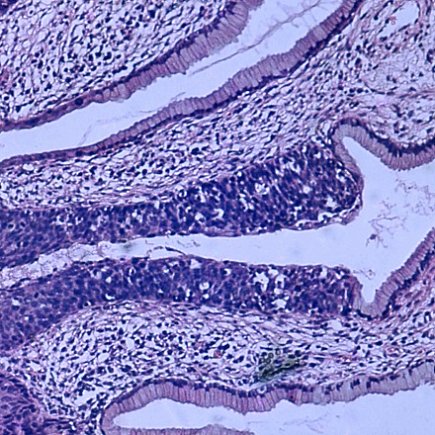
Danish study identifies genetic predisposition to HPV cancers using DNA testing
A Danish study has used DNA testing to reveal that mutations in the filaggrin gene cause a predisposition to human papillomavirus (HPV) cancers.
The filaggrin gene controls filaggrin proteins which express themselves in the skin, mouth, throat, and cervix. When mutations cause a reduction in filaggrin protein expression, skin function is impaired. The study showed that impaired skin function was associated to an increased risk of HPV cancers.
HPV is a genetic virus which can infect skin and mucus membranes. Many infections are harmless and have no symptoms, but in some cases, HPV infections can cause cancers of the cervix, vulva, vagina, penis and anus. Cervical cancer is the fourth highest contributor to cancer mortality in women, and is estimated to cause over 270,000 deaths each year.
Tests such as pap smears can be used to detect potentially cancerous cells in HPV sufferers and take action to reduce fatalities. However, the study’s authors concluded that DNA testing for a genetic predisposition to HPV cancers could significantly improve screening, and allow preventative vaccines to be applied earlier.
The research was undertaken by Glostrup University Hospital, the University of Copenhagen, Alborg University, Copenhagen University Hospital Gentofte, and the National Center for Health Data and Disease Control. The study is the first to investigate this particular association.
13,376 people participated in the study, all of whom underwent DNA testing to identify common filaggrin gene mutations. Of these 13,376, 586 cases were of HPV cancer and pre-cancer. When this data was cross-referenced with the participants’ DNA test results, a link was identified between the filaggrin gene mutations responsible for impaired skin function, and the incidence of HPV cancers.
It’s believed that the impaired skin function caused by these mutations affects HPV cancer risk in a few ways. One is that the skin acts to protect against microorganisms, and that reducing the effectiveness of this barrier causes a vulnerability to these microbes. Another is that UV sensitivity is increased which is why the mutations responsible are associated to increased levels of vitamin D.
Although not proved by the study, the researchers theorise that HPV cancer risk is increased by filaggrin gene mutations responsible for impaired skin function, because they lead to increased retention and penetration of HPV in tissues.
The study’s authors noted that other bacteria and viruses – such as hepatitis B & C – are known to cause cancer, and that filaggrin gene mutations should be investigated in relation to these cancers too.
By incorporating this research into genetic predisposition tests, DNA testing could be used to enhance screening for those at risk of HPV cancers. Once identified, the application of HPV vaccines could significantly reduce HPV cancer mortality. Two vaccines are currently available, both of which protect against the HPV types responsible for 80% of anal cancers, 70% of cervical cancers, and 60% of vaginal cancers.
To read independent reviews of the genetic predisposition tests you can buy, including our Editor’s reviews, click here.
The source research for this article can be found here.
